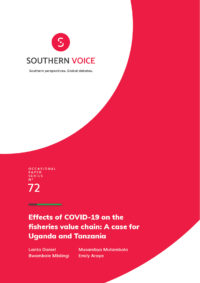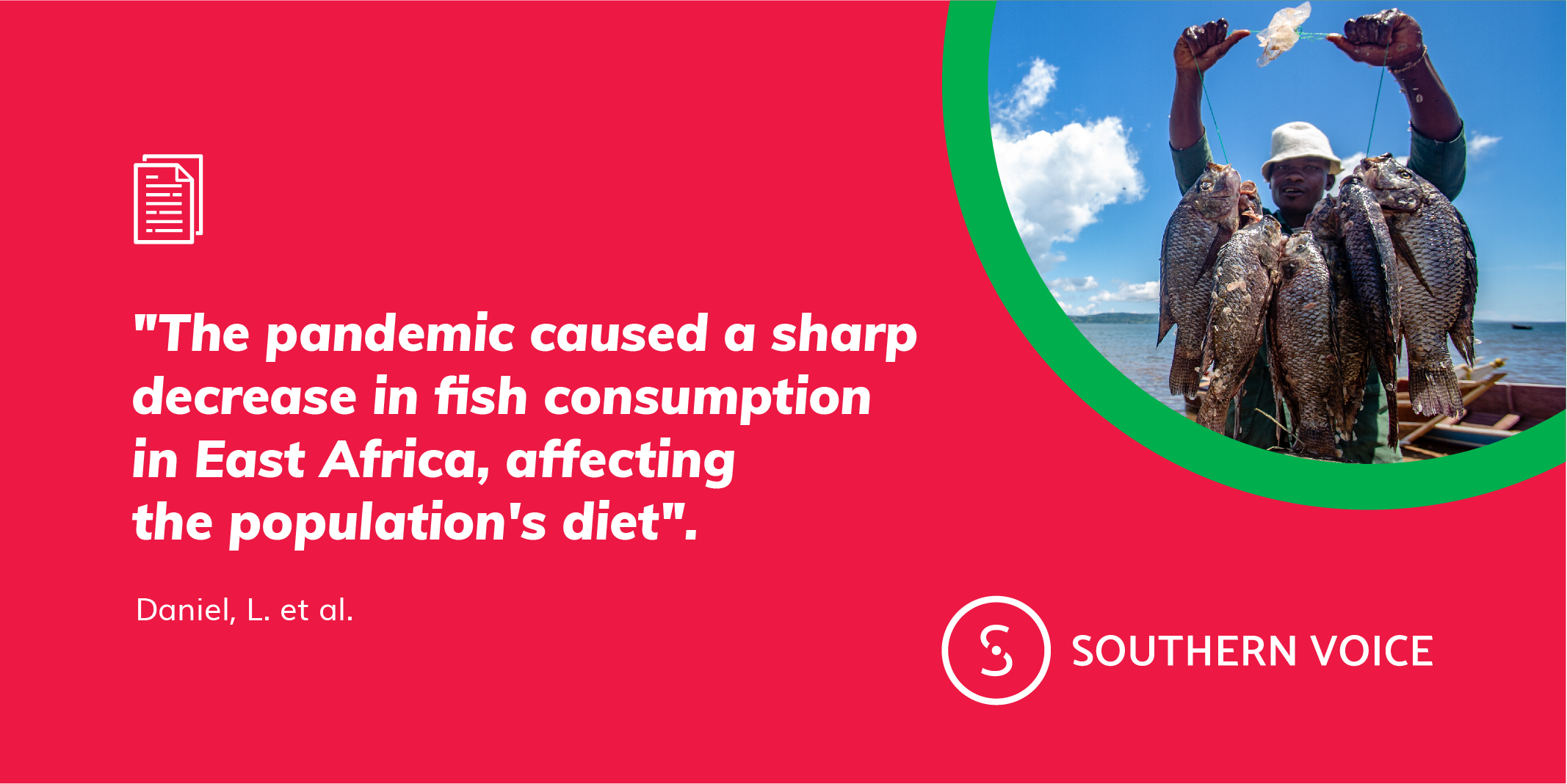 This study seeks to understand the impact of the COVID-19 crisis on fisheries value chain nodes in Uganda and Tanzania. It compares a country that imposed a lockdown (Uganda) with one that did not implement a strict lockdown policy (Tanzania). The study investigates the effects of the interventions set in response to the pandemic, and the role thatinformation and communications technology (ICT) played in ensuring sustainable fisheries continuity amidst the pandemic.
This study seeks to understand the impact of the COVID-19 crisis on fisheries value chain nodes in Uganda and Tanzania. It compares a country that imposed a lockdown (Uganda) with one that did not implement a strict lockdown policy (Tanzania). The study investigates the effects of the interventions set in response to the pandemic, and the role thatinformation and communications technology (ICT) played in ensuring sustainable fisheries continuity amidst the pandemic.
The research used a qualitative approach. Data collection included a desk review and primary data gathered through focus group discussions and key informant interviews. The study found that the interventions enforced to minimise the spread of COVID-19, such as curfews and social distancing measures, affected the industry. Health restrictions to contain infections resulted in delays in landing and offloading fish, which exacerbated fish spoilage and negatively affected fisheries’ income. The pandemic had a bigger impact on Uganda’s fishing industry more than Tanzania’s. In addition, the cost of operating fisheries businesses across the whole value chain increased in Uganda, while in Tanzania, it remained relatively stable. ICT usage improved slightly with no new or advanced technologies introduced in both countries. The study recommends that both countries’ governments and the private sector collaborate to invest in and improve fish preservation infrastructure and technologies, particularly for artisanal processing. Equally important are measures to create a robust procurement and distribution facility for fish and fish products and facilitate broader ICT integration in the sector through capacity building initiatives and deliberate reductions of ICT-related taxes.


